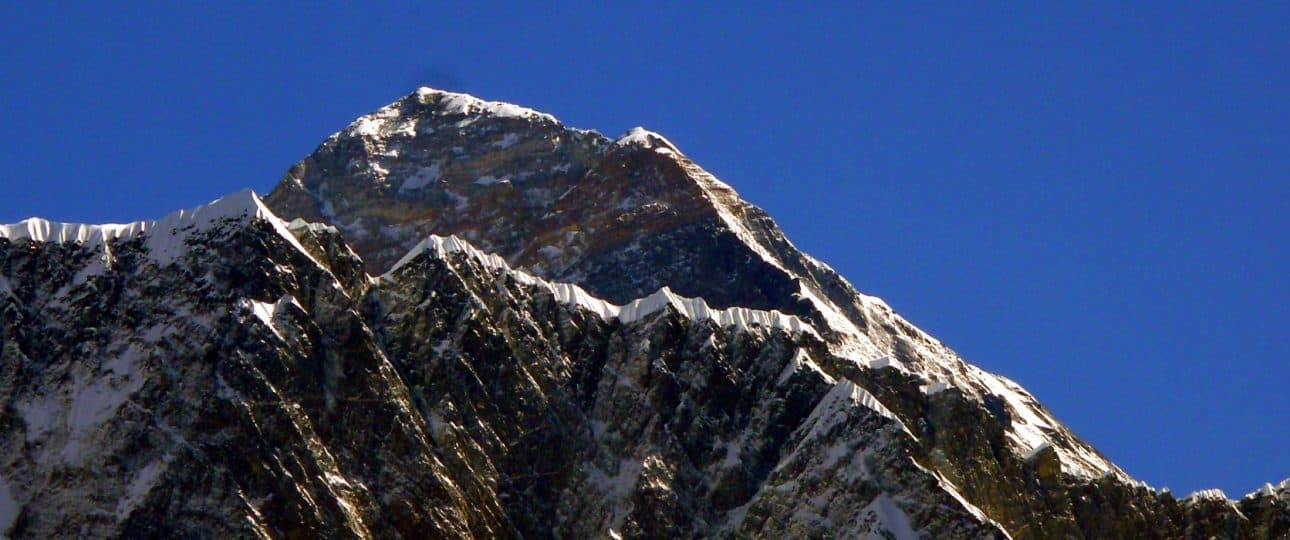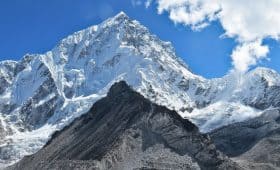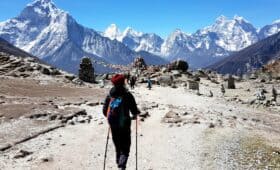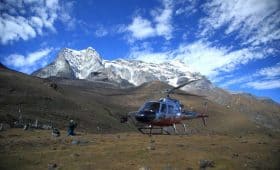How difficult is Everest Base Camp Trek? Many of the trekkers and travel enthusiasts often ask us the same question again and again.
The simple answer to how difficult Everest Base Camp trek is: it is not tailored for general tourists, as it requires a significant level of training and preparation beforehand. If you are well prepared, choose the right itinerary and are guided by professionals, you can truly enjoy the trek at its best.
Everest Base Camp Trek is a lifetime adventure for trekking enthusiasts all around the world. Yet, many find the trek to the Everest Base Camp difficult in many regards.
This trek is indeed challenging for most people but with right preparation it is something achievable no matter in what physical condition you are in .
Our first answer always is, “It is one of the most difficult treks in Nepal and probably in the world too. But, you can conquer it if you properly follow our itinerary and guidelines.”
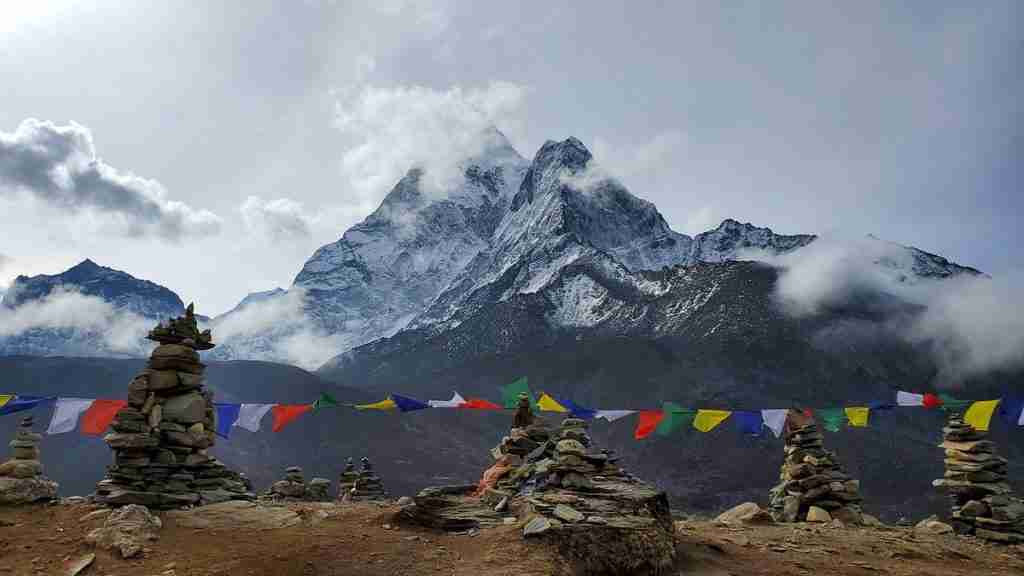
Table of Contents
- Trekking Duration
- High Altitude Trekking
- Training your body for the trek
- How difficult is Everest Base Camp Trek ?
- Frequently Asked Questions
- How many days do I need to walk in this trek?
- Do I need any sort of training to get ready for the trek?
- What gears must I carry?
- When is the right time to trek Everest Base Camp?
- What time is the coldest and hardest one?
- What is the altitude at Everest Base Camp?
- Is the Everest Base Camp the maximum point of elevation of the trek?
- How high is Kala Patthar?
- Will the routes get busy?
- Additional Information on Everest Base Camp
Trekking Duration
The estimated journey from Lukla to Everest Base Camp is approximately 130 kilometers or about 80 miles. So, the journey can be a tough for anyone while climbing on such high-altitude trekking area.
The total distance traveling per day would be anywhere around 13-15 kilometers. The trekking days can go anywhere from 9 to 13 days, depending on what itinerary you chose for your trip to EBC.
You should always consider the itinerary with proper acclimatization when choosing the best company for Everest Base Camp trek.

You might think that 15 km per day of walking isn’t much. But, in such uneven terrain and rocky surfaces along with high altitude, the journey is challenging even for experienced climbers and trekkers.
The strenuous journey from Lukla to the Everest Base Camp takes a lot of hard work and exercise. A person without reasonable fitness can hardly achieve this journey.
But, the trekking does not require any ropes, ice axes or crampons. You do not need any prior climbing or technical skills.
So, if you have the willpower and proper training, you can complete this majestic journey to the Everest Base Camp.
Want more information? Send us your query, and our experts will get back to you within 24 hrs.
High Altitude Trekking
The major factor that makes the Everest Base Camp Trek difficult is its high altitude. Most people underestimate the altitude of EBC as they think that it is just the base of Mount Everest and can easily conquerable.
Well, that’s when they get it wrong. The altitude aspect is one of the hardest parts as people are likely to have altitude sickness.
Acute Mountain Sickness (AMS) is one of the most underestimated illnesses. It can affect the trekkers at just the starting point of the trek. If you continue to trek without precaution and ignore the symptoms, the trek can even turn fatal.
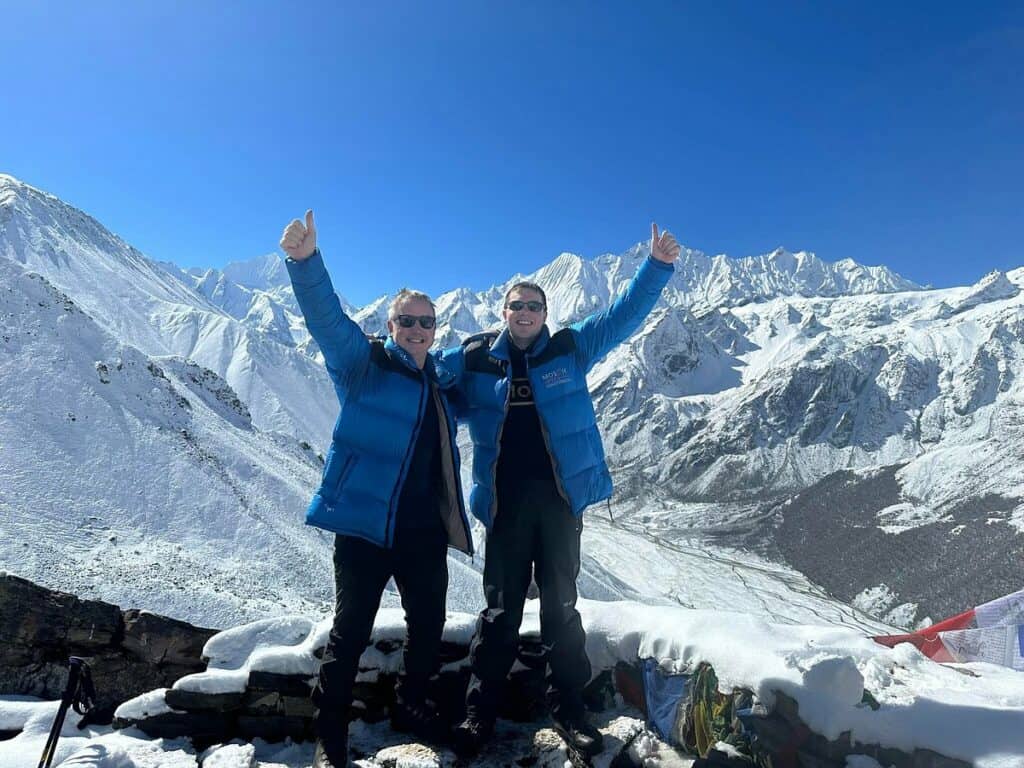
The EBC trek begins at Lukla which is around 3,000 meters. It is high enough to induce altitude sickness. The trekking will then begin with a steady climb up.
The journey then comes to the highest point of the trek, Kala Patthar, which is at 5,554 meters above sea level. Then the trekking ends at the base camp which is around 5,360 meters above sea level.
If you do not follow your guide and itinerary and most importantly, if you fail to acclimatize yourself, you will not be able to complete it. You might think that the acclimatization days are just a waste of time. But, it is the most vital part of the trek which stabilizes your body and gets you ready for the next altitude.

Training your body for the trek
Every person has a different level of tolerance and strength level. So, it depends upon the individual’s performance, level of fitness and ability to adjust to high altitudes. EBC is at 5,300 meters (18,044 feet) above sea level and no matter how fit or experienced you are, the altitude can get you at any time.
You don’t need to be a professional climber or trekker to complete this trek. But, many people underestimate the Everest Base Camp Trek and think they can achieve it easily. But without correct training prior to the trek, you will most certainly get altitude sickness and end up returning.
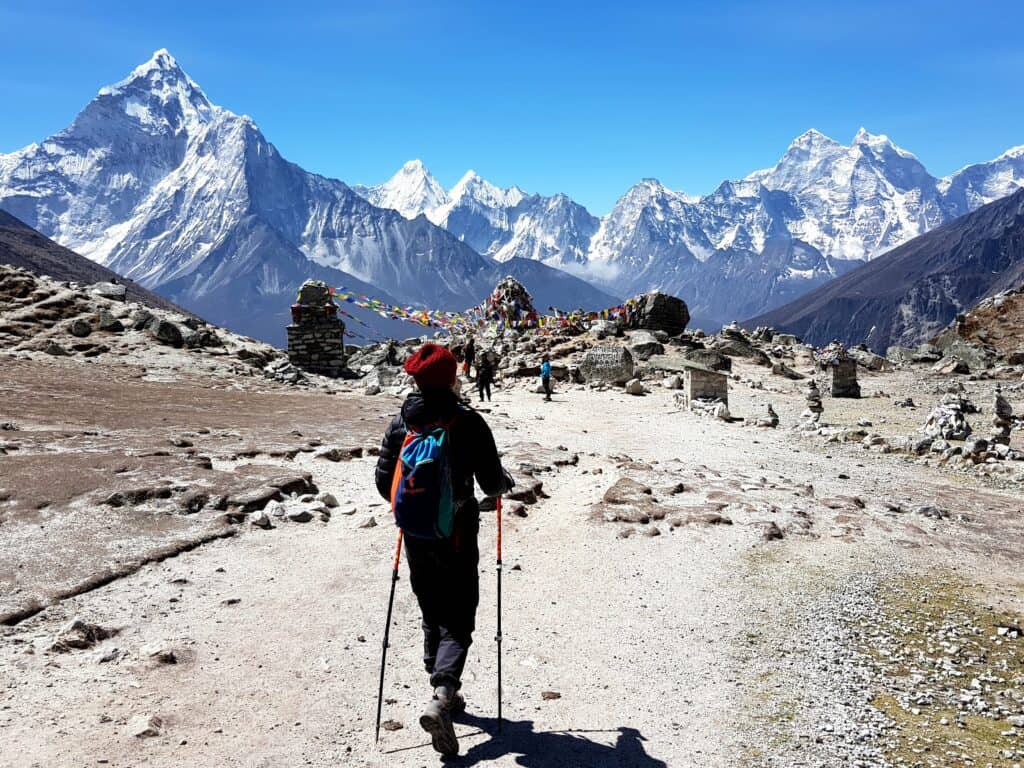
So, the most important thing to do before booking a trek is to have a basic training. It will improve your body strength and makes you ready for high altitude trekking. You will have to prepare yourself to walk 6 hours a day on rough terrain with the changing weather.
For training, start with small exercises. You can walk or hike for a few hours every day, both uphill and downhill. You can train in the gym focusing on your legs. Aerobic exercises will help a lot as well including jogging, swimming, rowing, and squatting.
How difficult is Everest Base Camp Trek ?
Some points to let you realize how difficult is EBC trek:
- You will have to continuously hike for 9 to 13 days, depending on the changing weather and environment.
- You will be trekking 5+ hours each day i.e. 16 to 20 km and hike uphill and downhill continuously.
- You will have to carry a backpack weighing around 5+ kilograms for hours. But, you can hire a porter as well.
- The oxygen levels go down, up to 60% less than in normal sea level condition. This can affect any age group and even people who are physically fit. So, you might get altitude sickness as well.

Frequently Asked Questions
How many days do I need to walk in this trek?
You will be walking around 9-13 days of your trek, depend on which trip you choose.
Do I need any sort of training to get ready for the trek?
Yes! Training is one essential part of this trek. You need to train your body to strengthen your legs and body. You need to train your heart to breathe normally even in low oxygen levels and thin air.
You need to climb steep hills and terrain with difficult weather condition at high altitudes. So, be prepared and do exercises that include running and hiking to hilly areas to improve your stamina and strength.
You will also need to properly pack for Everest Base Camp Trek with right gears and clothing.
What gears must I carry?
We will provide all the necessary gears. So, you will not need to bring any of the gears with you.
However, if you already have your gears, you can carry them or ask porters or the agency to carry them for you.
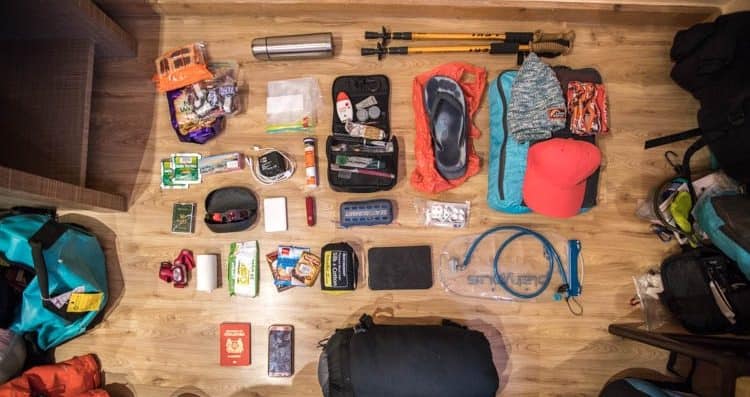
When is the right time to trek Everest Base Camp?
The best time to trek Everest Base Camp is during spring and autumn, months of those seasons are late March, April, May, late September, October, and November. But the best month would be the time from October to November.
What time is the coldest and hardest one?
The coldest and hardest months are December, January, and February where the weather conditions are harsh. It is not recommended to trek during these months.
But, some climbers and trekkers try and conquer it during winter as well.
What is the altitude at Everest Base Camp?
The elevation of Everest Base Camp is 5300m/ 17388 ft above sea level.
Is the Everest Base Camp the maximum point of elevation of the trek?
No. The maximum point on our Everest Base camp trek at Kala Patthar.
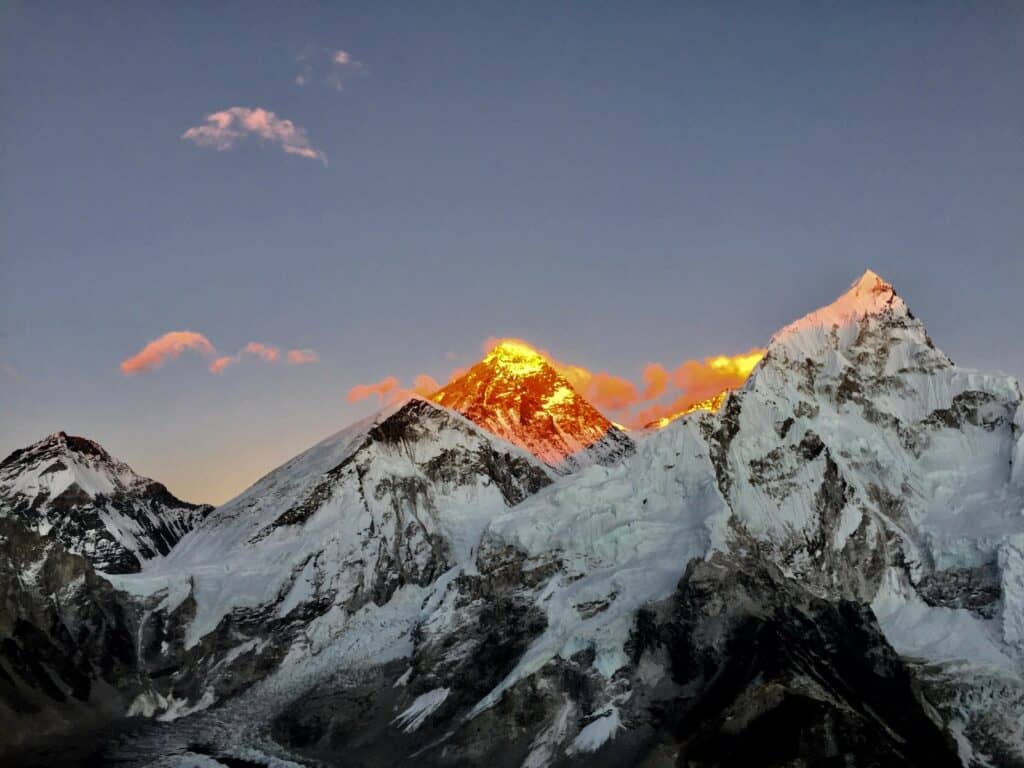
How high is Kala Patthar?
The maximum elevation of Kala Patthar is 5545m/18192 ft above sea level.
Will the routes get busy?
During peak season, you might get some traffic around some places as more than 30,000 tourists visit Nepal for Everest Base Camp Trek per year.
EBC is the single most popular trek in Nepal. But the area is quite big and you will not face any problem with food and accommodation as our agency will take care of everything you need on the way.
So, even in busy seasons, you will not have problems but you need to book it first.
Do contact us for booking and to get more information about Everest Base Camp trek.
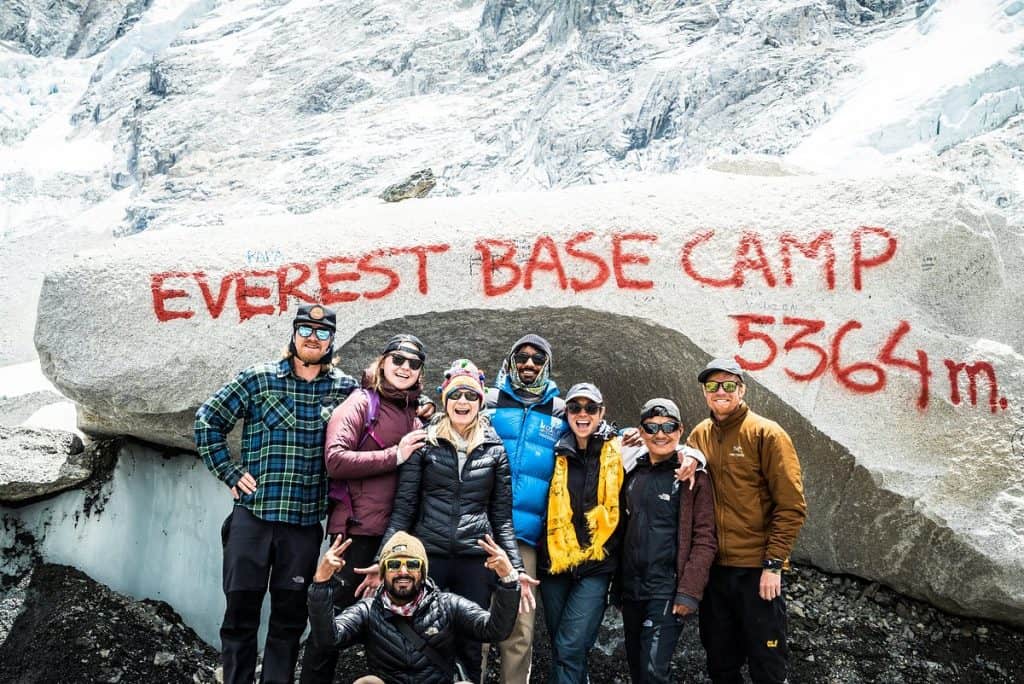
Additional Information on Everest Base Camp
At the starting point of the journey, you will be air-lifted (get exciting flight) to a small village called Lukla at an altitude of 2,853 meters above sea level.
The whole Everest region is known as the Solukhumbu Region, often called Khumbu region as well. It lies in Sagarmatha Zone and is a world heritage site called Sagarmatha National Park.
The Everest region is full of amazing glaciers, picturesque mountains, and forests, with diverse animal and bird species living in the region. It is also world famous for different religious monasteries ready to give you blessings for your journey.
The local people are called Sherpas. They live along the trails and are always open and hospitable towards the visitors on their way to Everest Base Camp.
Hopefully, explaining these difficulties will help you decide on the EBC trek. If you have any more questions about the difficulty or want to sign up for one of our adventures, please do not hesitate to fill out the form below.
Want more information? Send us your query, and our experts will get back to you within 24 hrs.

Madhav started working as a porter in 2001 and then moved on to work as a trekking guide. After working in the trekking and tourism industry for eight years, he co-founded Mosaic Adventure in 2009.
Madhav has trekked to most of the trekking destinations in Nepal, including Everest Base Camp Trek, Annapurna Base Camp, Annapurna Circuit Trek, Poon Hill Trek, Jomsom Muktinath Trek, Indigenous Peoples Trek, Langtang Valley Trek, Mardi Himal Trek, and all of the day hikes around Kathmandu.
He has also extensively traveled to other countries such as Australia, the USA, the UK, France, Hong Kong, Japan, China, the Philippines, the UAE, Saudi Arabia, Bahrain, Thailand, Turkey, and India. Madhav is the one who answers most of your questions about trekking and tours and helps to plan your trip by giving a personal touch.

